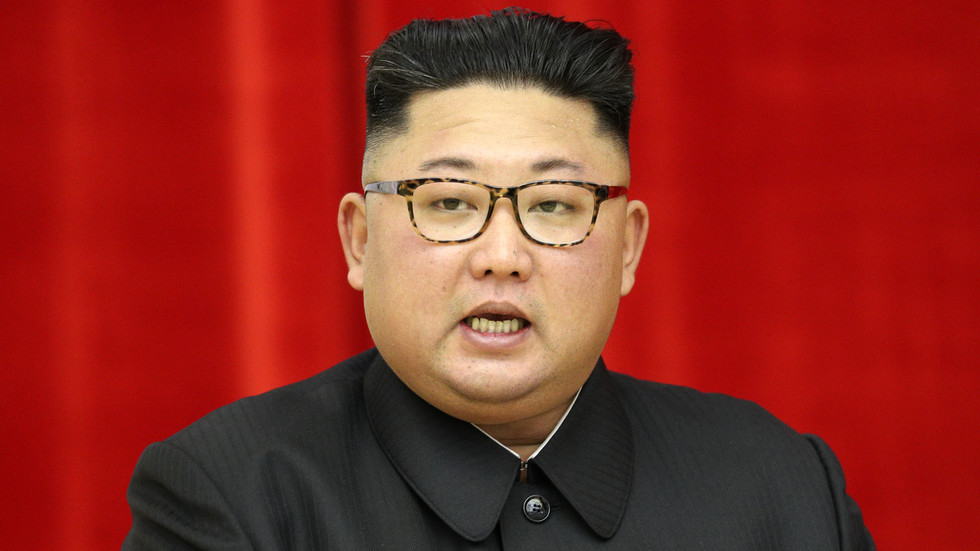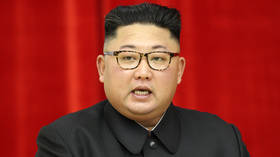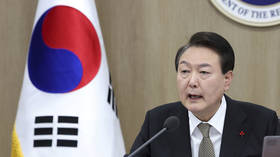
Addressing the Central Committee of the country’s Workers Party, Kim Jong-un cited a “new challenging situation” on the peninsula

North Korea’s leader Kim Jong Un. © Pyeongyang Press Corps/Pool/Getty Images
North Korean leader Kim Jong-un has called for further bolstering the country’s defense capabilities next year, citing the tense situation on the Korean Peninsula. Kim’s address on Wednesday followed months of regular missile launches by Pyongyang, with some media outlets claiming the country has even set a record.
The Korean Central News Agency (KCNA) reported on the leader’s speech before the Sixth Enlarged Plenary Meeting of the ruling Workers Party’s 8th Central Committee, in which Kim, among other things, laid out his vision for the Democratic People’s Republic of Korea’s (DPRK) military in 2023.
According to the transcript, the head of North Korea stressed that the country is facing a “newly created challenging situation.” With that in mind, Kim “set forth new key goals for bolstering up the self-reliant defense capabilities.”
The state-run media outlet, however, did not divulge what exactly those goals are.
The KCNA went on to report that the supreme leader had clarified the “orientation of struggle against the enemy” to which the party and the DPRK government must adhere in order to defend North Korea’s “national sovereignty and interests.”
According to Reuters, Pyongyang has set a record in 2022 for the number of rockets it has launched, a tally that supposedly includes several ballistic and cruise missiles.
In 2021, the country’s leadership announced plans to develop a number of “top priority” strategic weapons, including tactical nuclear weapons, hypersonic gliding flight warheads, nuclear-powered submarines and a reconnaissance satellite.

Last Friday, North Korea launched two ballistic missiles into the sea off its east coast. This came days after the KCNA claimed the country’s military had successfully tested its spy satellites carried by two rockets.
While South Korea and the US consistently accuse the North of destabilizing the region, Pyongyang insists a lot of the launches have come in response to joint Seoul-Washington military exercises on the peninsula.
As recently as last week, the two countries wrapped up drills featuring American nuclear-capable B-52 bombers and South Korean fighter jets.
Tensions between the South and the North escalated even further this Monday, when a number of UAVs, presumably launched by North Korea, crossed into South Korea’s airspace.
Seoul’s military failed to shoot down any of them, prompting South Korean President Yoon Suk-yeol to vow a harsher response in case of further “provocations” by the DPRK.




